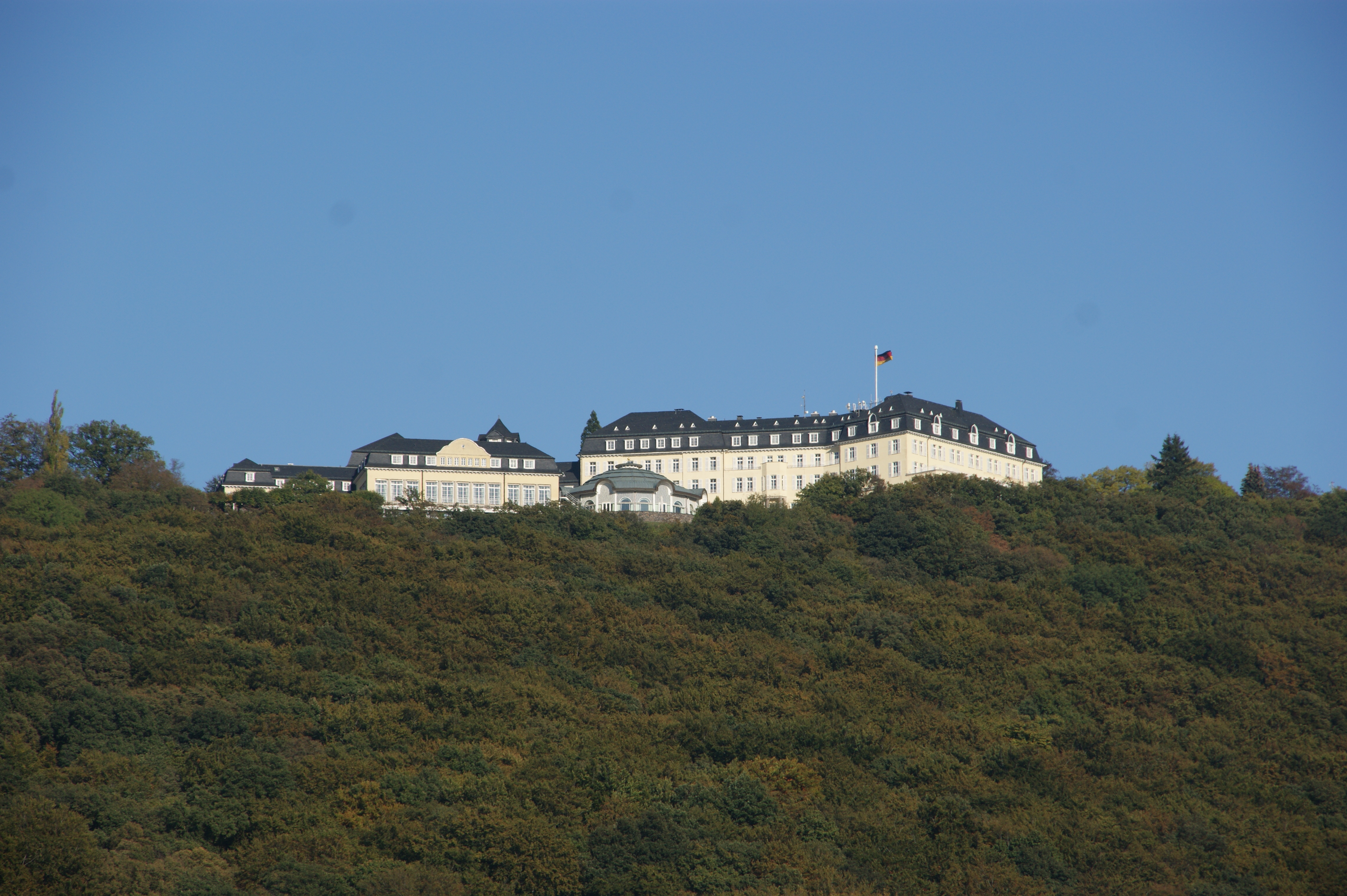
Allied High Commission
The Allied High Commission (also known as the High Commission for Occupied Germany, HICOG; in German Alliierte Hohe Kommission, AHK) was established by the United States, the United Kingdom, and France after the 1948 breakdown of the Allied Control Council, to regulate and supervise the development of the newly established Federal Republic of Germany (West Germany).
Not to be confused with the Allied High Commission for the occupation of Istanbul (1918-1923).
The Commission took its seat at the Hotel Petersberg near Bonn and started its work on September 21, 1949. It ceased to function under the terms of the Bonn–Paris conventions, on May 5, 1955.
The Occupation Statute specified the prerogatives of the Western Allies vis-à-vis the West German government, and preserved the right to intervene in areas of military, economic, and foreign policy importance. These rights were revised in the Petersberg Agreement several weeks later.
With the creation of the Federal Republic and the institution of the High Commission, the position of the Military Governors was abolished. Instead each of the three Western Allies named a High Commissioner.